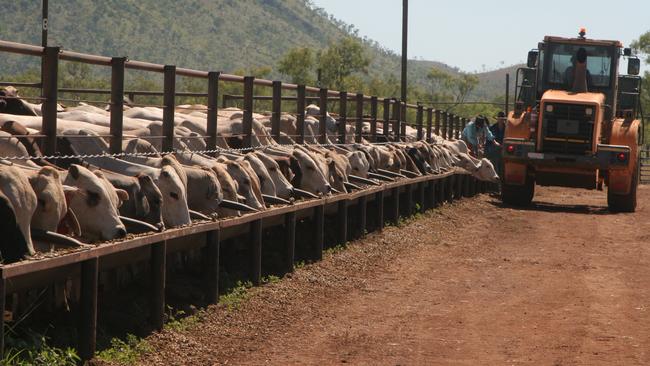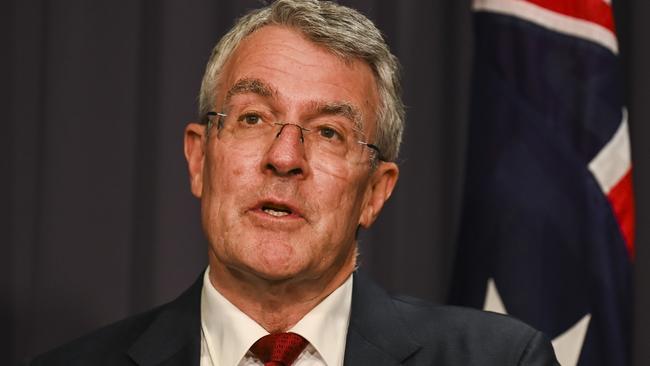Government hits back at grazier claims of stalling live export class action settlement
Attorney-General Mark Dreyfus says graziers, not the government, are responsible for delaying a settlement to the live cattle export class action.

Attorney-General Mark Dreyfus says graziers, not the federal government, are responsible for delaying a settlement to the live cattle export class action.
Cattle producers affected by the Gillard government’s snap ban on live cattle exports in 2011, which a court ruled was unlawful, have called for a $2bn payout – $1.2bn to cover damages and $800,000 in interest – and accused the government of deliberately stonewalling with a lowball offer in December.
The offer of $215m, revealed in estimates last week, was put to the claimants in December but is yet to be formally rejected ahead of a deadline in July.
“The commonwealth has engaged in a good-faith attempt to settle the claims made by the class by offering to pay as much money as it thinks it can properly offer, on the information that has been provided by the class to date,” a spokesman for Mr Dreyfus said.
“The commonwealth’s offer of settlement has been with the class since December, and any delay in resolving the proceeding has not been due to any actions on the part of the commonwealth.”

Agriculture groups have accused the government of deliberately stalling the payout.
The lawyer leading the case, MinterEllison partner Andrew Gill, in April told an industry conference the government’s lawyers were being instructed out of cabinet instead of the Department of Finance.
In April, Federal Court judge Steven Rares expressed frustration with delays to the settling the case and called for a “sensible resolution”, saying the matter was getting “utterly unrealistic”.
Justice Rares said that if the groups could not come to an agreement, the court would need to make a determination.
“The simple fact is if we’re dealing with a large number of people, they can either run 200 individual cases before some process, which will be enormously expensive, wasteful and, after all these years, just silly, or they can get on with getting a sensible resolution on a basis that people can at least be satisfied,” he said.
“It’s hardly going to compensate people to give them money 12 years after they’ve suffered a loss. I mean, you know, this is getting utterly unrealistic.”
Only the lead applicant in the class action, Brett Cattle Company, has received a payout of about $3m.
The government last year agreed to settlement talks with the remaining claimants rather than finding a solution through the courts.
The claimants, including some of the country’s biggest beef companies, say the government’s actions had effects beyond 2011 and resulted in loss of business until 2014. The government’s offer is to pay only for loss of business in 2011. There is also disagreement over the eligibility of indirect industry participants, such as truck drivers, for payouts.
The court in 2020 found that at least 88,000 cattle would have been exported to Indonesia in 2011 if the ban did not take place.




To join the conversation, please log in. Don't have an account? Register
Join the conversation, you are commenting as Logout